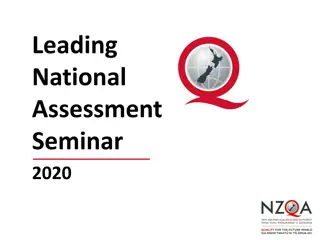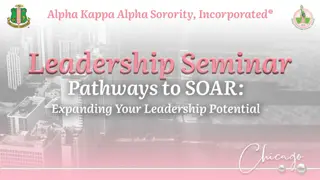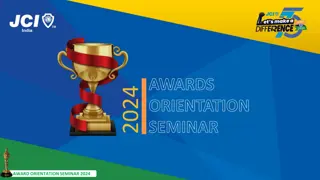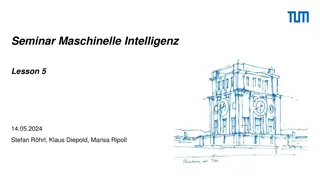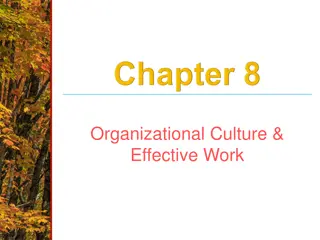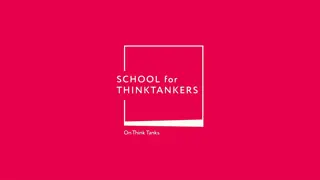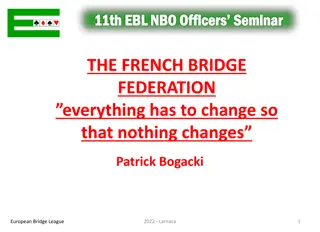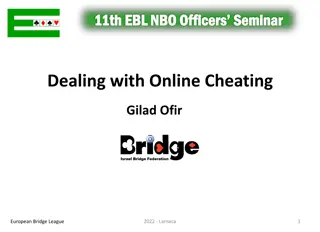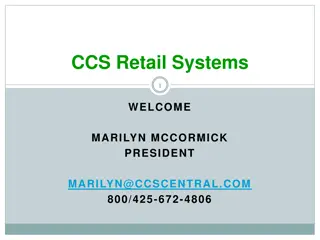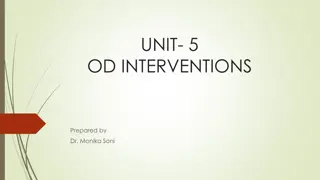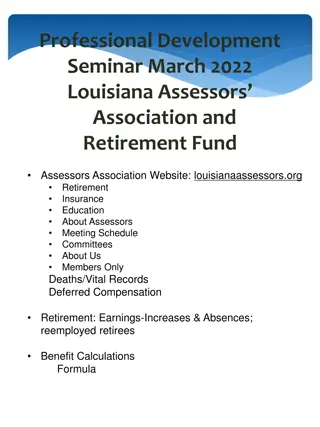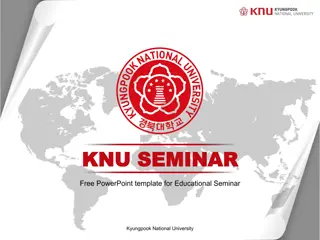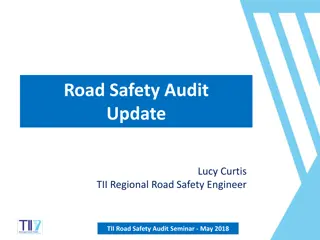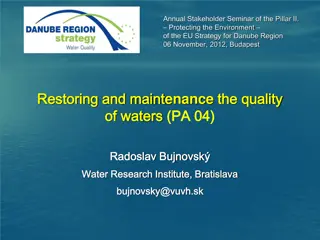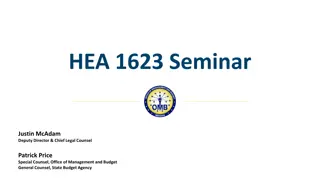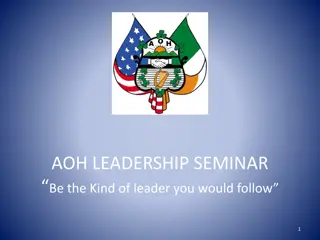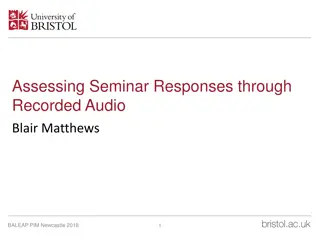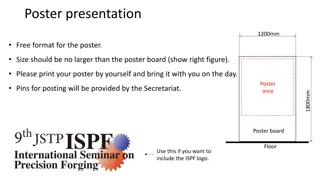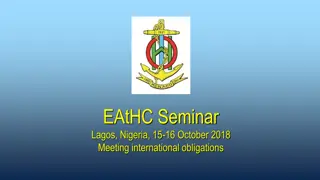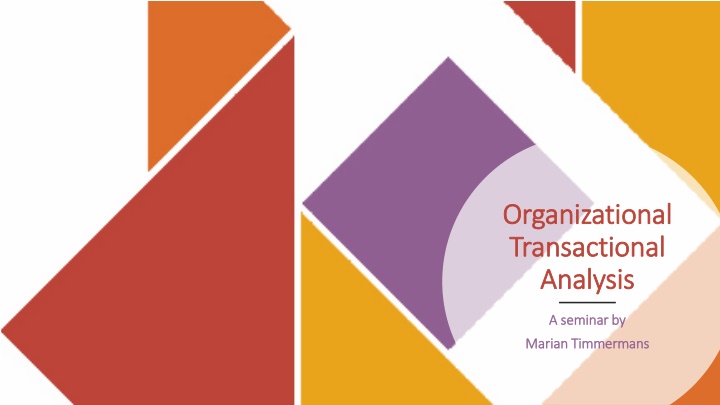
Seminar on Organizational Transactional Analysis by Marian Timmermans
Join the seminar by Marian Timmermans on Organizational Transactional Analysis. Explore the application of TA in organizations for development, growth, and increased effectiveness. Discover the importance of understanding roles in the VUCA world and how TA helps in reducing complexity in modern organizations.
Download Presentation

Please find below an Image/Link to download the presentation.
The content on the website is provided AS IS for your information and personal use only. It may not be sold, licensed, or shared on other websites without obtaining consent from the author. If you encounter any issues during the download, it is possible that the publisher has removed the file from their server.
You are allowed to download the files provided on this website for personal or commercial use, subject to the condition that they are used lawfully. All files are the property of their respective owners.
The content on the website is provided AS IS for your information and personal use only. It may not be sold, licensed, or shared on other websites without obtaining consent from the author.
E N D
Presentation Transcript
Organizational Organizational Transactional Transactional Analysis Analysis A seminar by A seminar by Marian Timmermans Marian Timmermans
Welcome! Program: Program: Introduction to zoom, to Marian, to TA Org Introduction to zoom, to Marian, to TA Org The dynamic PRO The dynamic PRO- -triangle triangle The group as a whole The group as a whole Wrap up Wrap up
Organizational Transactional Analysis Application of TA in organizations (EATA) Application of TA in organizations (EATA) organizational frames of reference organizational frames of reference development, growth and increased effectiveness of the people and/in the development, growth and increased effectiveness of the people and/in the organization organization Rosa Krausz: Rosa Krausz: collective behavior collective behavior psychological approach to behavior in organizations psychological approach to behavior in organizations
Organizational Transactional Analysis How I see it: How I see it: Take person Take person- -in in- -role as starting point role as starting point Take group Take group- -as as- -a a- -whole as starting point whole as starting point Aim: development & effectiveness of people in/and organizations Aim: development & effectiveness of people in/and organizations Why TA Org is so useful in 21 Why TA Org is so useful in 21st stcentury corona times: century corona times: Framework for understanding reality and reducing complexity in organizations Framework for understanding reality and reducing complexity in organizations Options! Options!
Role (1) Change is the only constant (VUCA world) Change is the only constant (VUCA world) We have many roles We have many roles TA Org focusses on role(s) at work TA Org focusses on role(s) at work job description is a start job description is a start you need to understand what the organization is for you need to understand what the organization is for
Dynamic model person person role role organization organization Reference: Anne de Graaf & Klaas Kunst Reference: Anne de Graaf & Klaas Kunst
PRO in breakout rooms Person Person: What do you bring (knowledge, experience, personality) : What do you bring (knowledge, experience, personality) and what do you need? What assumptions do you have about your and what do you need? What assumptions do you have about your role? role? Organization Organization: What is the organization for? What does the : What is the organization for? What does the organization want from you? How does the organization support organization want from you? How does the organization support you in your role? you in your role? Role Role: What are your tasks? What would the organization miss if : What are your tasks? What would the organization miss if you weren t there? How do you understand your role? you weren t there? How do you understand your role?
Role (2) Dynamic model Dynamic model Formal and informal roles Formal and informal roles Bernd Schmid: private, organizational, professional role Bernd Schmid: private, organizational, professional role
Dynamic model role role person person role role person person organization organization person person role role organization organization organization organization
PRO in context person person role role C O N T E X T C O N T E X T organization organization
The group-as-a-whole (1) What is a group? What is a group? The group and its culture stay alive, even if all participants/ The group and its culture stay alive, even if all participants/ members have been replaced members have been replaced Group life under the surface profoundly impacts the Group life under the surface profoundly impacts the effectiveness of a team effectiveness of a team References: Transactional Analysis Journal e.g. Servaas van References: Transactional Analysis Journal e.g. Servaas van Beekum Beekum, N. Michel , N. Michel Landaiche Landaiche
The group-as-a-whole (2) Berne: people are in groups to prevent biological, psychological and Berne: people are in groups to prevent biological, psychological and moral decay moral decay Berne: behavior cannot be understood by individual psychology alone Berne: behavior cannot be understood by individual psychology alone Berne: It is always an easy out for a consultant in group dynamics to Berne: It is always an easy out for a consultant in group dynamics to suggest that [ suggest that [ the individual (MT) the individual (MT)] is in need of personal ] is in need of personal psychotherapy, but that merely amounts to a confession that the psychotherapy, but that merely amounts to a confession that the consultant has reached the end of his rope, as far as his knowledge of consultant has reached the end of his rope, as far as his knowledge of group dynamics is concerned ( group dynamics is concerned (Structure and dynamics Structure and dynamics, p. 191) , p. 191)
Games in teams Psychological game: something of importance is not on the Psychological game: something of importance is not on the table, but is worked with in an indirect way table, but is worked with in an indirect way Games in teams are permitted by group culture Games in teams are permitted by group culture The whole team is involved (may take a while to notice ) The whole team is involved (may take a while to notice )
Games in teams Persecutor Persecutor Rescuer Rescuer Bystanders Bystanders Victim Victim Reference: Drama triangle: Steve Karpman / Bystander: Petr ska Clarkson Reference: Drama triangle: Steve Karpman / Bystander: Petr ska Clarkson
Games in teams: break out rooms Decide which case to discuss (confidentiality!) Decide which case to discuss (confidentiality!) Then focus on the Bystanders: What do they do? How do Then focus on the Bystanders: What do they do? How do they influence the group Game? they influence the group Game? What question would you want to ask this team? What question would you want to ask this team?
Organizational Transactional Analysis What do you take with you from this seminar What do you take with you from this seminar - -> to your professional self > to your professional self - -> to your organization? > to your organization?
Contact? Contact? mail@mariantimmermansconsult.nl mail@mariantimmermansconsult.nl www.mariantimmermansconsult.nl www.mariantimmermansconsult.nl +316 533 24483 +316 533 24483

